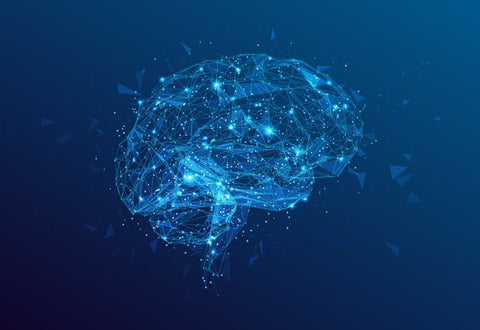Neurotransmitters, also known as brain chemicals, enable neurons to fire with electrical impulses that coordinate all cognition and movement.
When neurotransmitters are too low, too high, or generally unbalanced, they can disrupt cognitive functions, mental health and even long-range brain health.
Nootropics for neurotransmitters may help. By influencing brain chemical production, conversion and utilization, nootropics support the peak cognition associated with a well-balanced brain.
In this article, we will detail the best neurotransmitters supplements you can take, focusing on natural brain-boosting nootropics. Let's get to it!
Quick Summary: Top Nootropics for Neurotransmitters
- N-Acetyl L-Tyrosine (NALT): Amino acid raw material makes high performance brain chemicals
- L-Theanine: Green tea amino acid regulates neurotransmitters for relaxation and mental clarity
- Rhodiola Rosea: Performance enhancer regulates dopamine, norepinephrine and acetylcholine
- Bacopa monnieri: Plant adaptogen nootropic regulates serotonin, dopamine, acetylcholine, GABA
- Lion's Mane Mushroom: Helps mood, may work by regulating monoamine neurotransmitters
- Caffeine: Energizes alertness by blocking sleepy neurotransmitters and boosting dopamine levels
- Omega-3s (DHA/EPA): Support flexible cell membranes for efficient brain chemical signaling
- Prebiotics and probiotics: Nourish the gut microbiome that helps synthesize some brain chemicals
- Essential Nutrients: Vitamins and minerals are key for brain chemical production and conversion
Dietary Supplements for Neurotransmitters
- Mind Lab Pro®: Whole-brain booster does it all with nootropics for neurotransmitters: N-Acetyl L-Tyrosine (NALT), L-Theanine, Citicoline, Rhodiola Rosea, Bacopa Monnieri, B vitamins and more.
- Performance Lab® Mind: Productivity pill restores brain chemicals depleted by stress, multitasking, and overwork. Promotes sharp cognition and recovery from mental burnout.
- Prebiotic: Brain chemical balance via the digestive tract. Nourishes good bacteria in the gut (probiotics), helping them grow into a healthy microbiome that produces serotonin.
- Performance Lab® Omega-3: Supplies DHA and EPA for brain neurotransmitters in a vegan softgel with clean, eco-friendly Omega-3s sourced from marine algae -- not fish.
- Caffeine 2: Advanced caffeine pill; includes nootropics that help to optimize and restore the brain chemicals that are depleted by stimulation.
- Pre Lab Pro®: Nootropic energizing pre-workout for peak athletic performance with no crash. Supports catecholamine neurotransmitters that power you though intense exercise.
- NutriGenesis® Multi for Women and for Men. Easy-to-absorb essential vitamins and minerals required for many aspects of neurotransmitter production and conversion
We will go into greater detail on each of these supplements towards the end of this guide.
What Are Neurotransmitters?
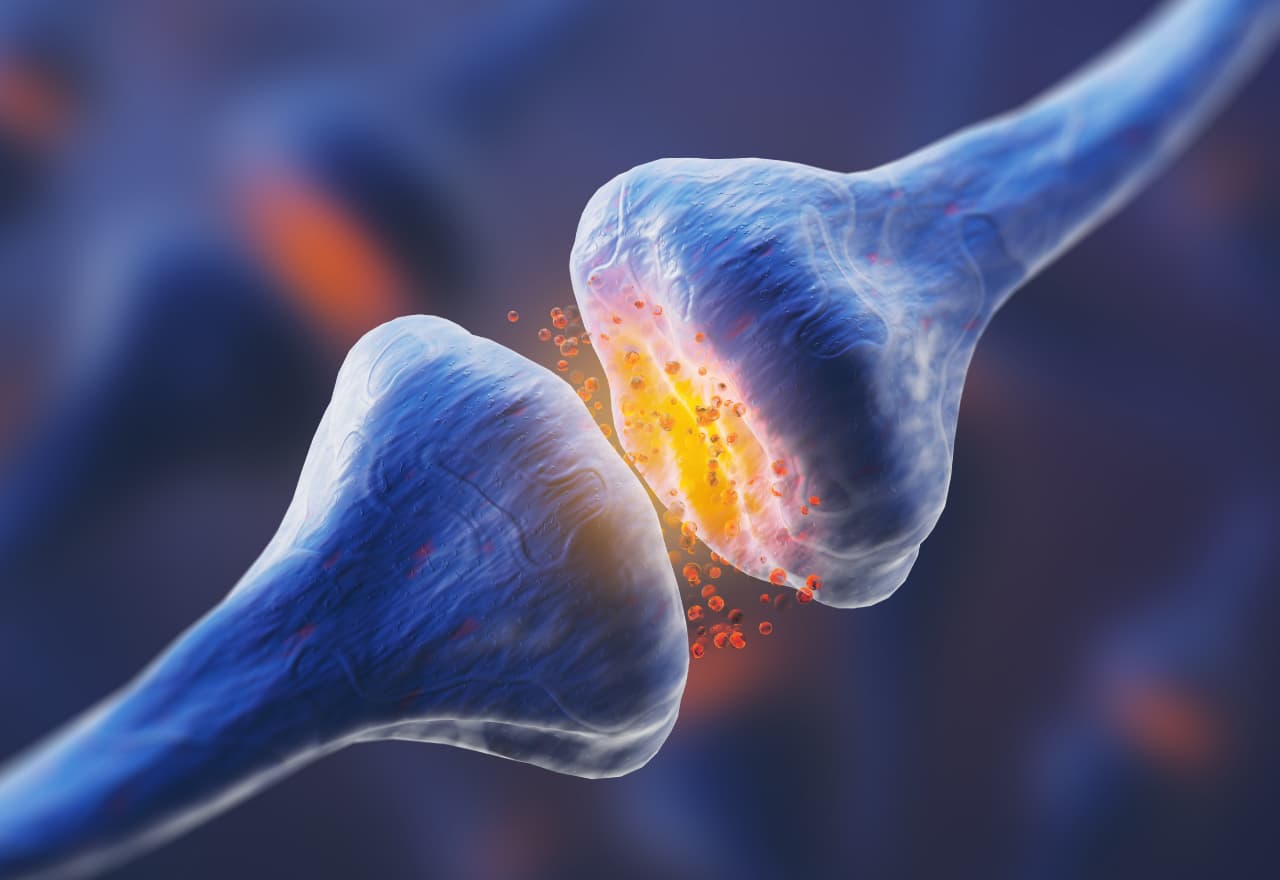
Neurotransmitters are chemical messengers, conducting signals across the synapses (gaps between nerve cells) throughout the central nervous system. This neurotransmission enables neurons to communicate and exchange information.
Brain chemicals are classified as excitatory neurotransmitters (focus, attention, energy) and inhibitory neurotransmitters (relaxation, calm, fatigue). However, some brain chemicals may function as both.
Cognition can be significantly impacted by neurotransmitter imbalances in the brain.
Several nootropic neurotransmitter supplements assist with brain chemical balance. We'll get into which ones in a moment, but first a quick refresher on what brain neurotransmitters are and how they affect cognitive function.
Key Neurotransmitters for Cognition
There are over 100 known neurotransmitters in the human body. In this article, we are focusing on those most influenced by nootropics for cognitive function. These important neurotransmitters include:
Acetylcholine: Synthesized from choline; regulates processing, problem-solving, decision-making. Low acetylcholine levels are tied to Alzheimer's disease and issues with memory, attention and focus.
Serotonin: Made from tryptophan; key for mood, sleep, cognition. 95% of serotonin is produced in the gut.(1) Serotonin imbalance may cause mood disorders and irritable bowel syndrome symptoms.
Dopamine: Dopamine plays key roles in mood, motivation and reward. Deficiency leads to low energy, brain fog and mental health issues. Normal levels help mood, stress management and problem solving.
Norepinephrine: Key role in "Fight or Flight" central nervous system activity. Balance helps alertness, focus, stress management, emotional resilience. Deficiency links to ADHD, anxiety, low mood, fatigue.
Epinephrine: Fight or Flight, alertness, brain energy metabolism, emotional regulation and memory function. Deficiency is linked to brain fatigue and low energy; excess with jitters and tension.
Gamma-Aminobutyric Acid (GABA): Main inhibitory neurotransmitter. Researchers have called it a "natural relaxant."(2) Enhances cognition via focus, relaxation and improved sleep quality.
Glutamate: Main excitatory neurotransmitter and most abundant neurotransmitter. Made from glutamic acid. Key for mood, memory, learning and plasticity. Deficiency leads to fatigue; excess to anxiety.
What causes neurotransmitter imbalance?
Some causes of neurotransmitter deficiency and excess -- like genetic, medical and age-related changes -- are beyond our control. Other causes may be modified -- in some cases, by taking nootropics.
Some modifiable causes of brain chemical imbalances:
- Nutrition: Neurotransmitters are made from building blocks like B vitamins, vitamin D, omega-3 fatty acids, tryptophan and other amino acids. Poor nutrient intake may impact neurotransmitters.
- Chronic Stress: Prolonged exposure to stress can deplete neurotransmitters. Chronic stress may lead to sustained levels of cortisol, which can further disrupt how neurotransmitters work.
- Lifestyle Factors: Lack of physical activity, poor sleep patterns, and exposure to toxins (such as heavy metals) can negatively impact neurotransmitter levels and accelerate cognitive decline.
- Gut Health: Poor microbiome health (beneficial bacteria in the gut) can impact neurotransmitter production. A large amount of serotonin is produced in the gastrointestinal tract.
Let's now take a look at how nootropics may help with some of these brain chemical challenges.
Best Nootropics for Neurotransmitters
N-Acetyl L-Tyrosine (NALT)

L-Tyrosine is a building block amino acid used to make catecholamine chemical messengers: dopamine, norepinephrine and epinephrine synthesis.
During stressful, high-intensity and multitasking cognition, the brain burns through tyrosine stores and catecholamine brain chemicals faster. Low catecholamine levels are in turn linked with poor attention and sluggish mental performance.
NALT may restore burned-out brain chemicals. Researchers suggest consuming tyrosine raises brain tyrosine concentrations and directly stimulates neurotransmitter synthesis.(3)
L-Tyrosine's pro-catecholamine activity is suggested support enhanced mental performance under chaotic, stressful and even sleep deprived scenarios.(4) It's also popular as a sports nutrient.
Tip: N-Acetyl L-Tyrosine (NALT) is a preferred L-Tyrosine form due to its bioavailability advantages.
Bacopa Monnieri

Bacopa monnieri is one of the best natural nootropics and a legendary nootropic herb brain tonic of ancient Ayurvedic tradition. Valued for strengthening the brain's ability to cope with stress, Bacopa may help cognition in many ways, including via brain chemical support.
Researchers have suggested that Bacopa monnieri may modify serotonin, acetylcholine, GABA and dopamine levels to execute its overall brain-boosting effects.(5)
Bacopa monnieri has enhanced several types of memory in human clinical trials,(6) and is a top nootropic for studying and new learning. Researchers have called it a "calming cognitive enhancer."(7)
Lions Mane Mushroom

Lion's mane is primarily known for supporting Brain-Derived Neurotrophic Factor (BDNF), which in turn supports brain plasticity, overall brain health and cognitive improvement.
This nootropic mushroom also appears to help with production of brain chemicals, specifically the monoamine neurotransmitters.(8) Monoamines like dopamine, norepinephrine and serotonin play crucial roles in regulating mood, arousal, alertness, and a variety of other cognitive functions.
Researchers have reported that Lion's Mane Mushroom may help with mood, apprehension and mental clarity, as well as enhancing mental performance in adults with age-related brain issues.(9,10)
Rhodiola Rosea

As a nootropic herbal adaptogen, Rhodiola rosea supplies active rosavins and salidrosides that seem to support neurotransmitter status through two bio-pathways:
- MAO Inhibition - Rhodiola may inhibit the action of monoamine oxidase, an enzyme responsible for the breakdown of dopamine, serotonin, and norepinephrine.
- Cortisol Reduction - Via the Hypothalamus - Pituitary - Adrenal (HPA) Axis, Rhodiola may help regulate the release of stress hormone cortisol, mitigating inappropriate stress responses.
In small and medium doses, Researchers have suggested that Rhodiola rosea appears to stimulate the noradrenalin, serotonin, dopamine and acetylcholine receptors in the central nervous system (CNS).(11)
Rhodiola naturally boosts energy metabolism, improves mood and enhances mental processing. Researchers have said Rhodiola is considered a natural performance enhancer for body and mind.(12)
L-Theanine

L-Theanine is one of the nootropic amino acids that helps both cognitive performance and brain health.
L-Theanine crosses the blood-brain barrier and enters the brain, where it raises Alpha brain waves and modulates calming neurotransmitters. Specifically, researchers have suggested that L-Theanine may regulate dopamine levels, as well as influencing serotonin and GABA.(13)
In addition, L-Theanine may keep excitatory glutamate in check, optimizing yet another parasympathetic nervous system ("rest & digest") pathway. It feels like clean, clear-headed "wakeful relaxation." Researchers have called it an "anti-stress" effect.(14)
L-Theanine's brain chemical and brain wave effects have been linked with enhancements across several cognitive functions, including attention, short-term memory and executive functioning.(15) It's great for creative problem solving, for studying and overall clear thinking.
Phosphatidylserine (PS)

Phosphatidylserine (PS) is known as the best nootropic to sharpen memory. It boosts brainpower via several different bioactivities, including possible roles in brain chemical transmission and regulation.
PS helps to optimize healthy brain cell membranes, which are responsible for "firing' with the brain chemicals. Researchers have also reported that PS may be involved in a variety of brain chemical responses, including the release of acetylcholine, dopamine and noradrenaline.(16)
Researchers suggest PS may benefit sports performance, stress management, mood and especially memory: it has been shown to boost memory formation, consolidation, retention and recall.(17)
Citicoline

Citicoline is a dynamic nootropic that may influence acetylcholine, glutamate and dopamine levels. It also helps nourish brain cell membranes that "fire" with these neurotransmitters.(18)
Citicoline supplies choline: a nootropic that forms neurotransmitter acetylcholine.(19)
Some additional early research shows Citicoline may also assist norepinephrine and dopamine levels, as well as regulating the excitatory neurotransmitter glutamate.(20)
As an important nootropic for brain energy and cell membrane formation, Citicoline also appears to offer neuroprotection and support for brain structures and functions that are involved in neurotransmission.
One human research study found that Citicoline (as Cognizin®) may boost brain energy production by 13.6% and accelerate brain cell formation by 26%.(21) Additional citicoline benefits include support for attention, reaction time, learning, memory and age-related cognitive issues.
Omega-3 Fatty Acids

Omega-3 fatty acids (also called essential fatty acids, or EFAs), particularly Docosahexaenoic acid (DHA), are important for brain development and overall cognitive health. They support fluid, flexible cell membranes for efficient neurotransmitter signaling that drives learning, memory, and mood.
Researchers have suggested that neurotransmitters in the brain -- acetylcholine, dopamine, serotonin, norepinephrine, glutamate and GABA -- may all be affected by low availability of DHA.(22)
Adequate levels of DHA, on the other hand, can improve neurotransmitter efficiency, potentially enhancing cognitive functions, promoting mental health, and helping protect against age-related brain disorders.
Omega-3s brain chemical support may contribute to their evidence-backed benefits for depression, mood disorders and mental health.(23)
Prebiotics

Dietary sources of prebiotic fiber (including prebiotic supplements in capsules) play a big role in supporting the gut microbiome, which in turn has a profound impact on the synthesis of brain chemicals, crucial for cognitive and emotional health.(24)
Beneficial gut bacteria (probiotics) ferment prebiotic fiber, leading to the production of short-chain fatty acids (SCFAs), which have been shown to influence brain chemistry and function. For example, 95% of the body's serotonin levels are made in the gut; a healthy gut microbiome is key for its production.
In "feeding" the microbiome, prebiotics help gut health plus brain chemicals for overall brain function and mental well-being. Researchers have suggested that consuming prebiotics may help people with mood issues and brain fog to reduce cognitive symptoms and improve quality of life.(25) Prebiotics appear to be among the best nootropics for serotonin.
Caffeine

Caffeine, a central nervous system stimulant, primarily affects the brain by blocking adenosine receptors, which typically promote relaxation and sleepiness. This blockage leads to increased alertness, wakefulness and feelings of energy.
Caffeine also indirectly boosts the levels of neurotransmitters such as dopamine and norepinephrine, enhancing mood, attention, and cognitive performance.(26)
The increased dopamine activity contributes to caffeine's mood-elevating effects, and the heightened norepinephrine levels can improve concentration and response times.
However, these effects can vary based on individual sensitivity to caffeine. Certain supplements with caffeine lead excessive consumption may lead to negative effects like anxiety, restlessness, and impaired sleep quality.
Overall, caffeine in moderate doses (which is what the best caffeine pills use) can improve mood and cognitive functions like memory, attention, and reaction times, making it the world's most widely used psychoactive substance for enhancing mental performance.
Vitamins B6, B9 and B12

Vitamin B6, B9 and B12 in particular are regarded for their roles in helping neurotransmitters.
In their active forms, these B vitamins contribute to the production, conversion and utilization of serotonin, GABA, the catecholamine neurotransmitters (dopamine, epinephrine, norepinephrine), sleep-inducing melatonin and other neurotransmitters.(27)
B-Vitamins' close relationship with brain chemicals may play a role in their benefits for mood, memory and long-range healthy brain function.
More on Vitamin B6, Vitamin B9 and Vitamin B12
Vitamin D

Vitamin D is believed to regulate dopamine, specifically by interacting with the enzymes and cell receptors that are involved in its production.
Failing to get enough Vitamin D appears to be associated with lower levels of dopamine in the brain and related mood problems. On the other hand, researchers in one meta analysis have suggested that higher blood Vitamin D levels appear to be associated with lower rates of depression.(28)
Vitamin D's possible role in mood may be partially attributed to its influence on brain chemicals, especially dopamine levels.
Magnesium

Magnesium is a crucial mineral multitasker that catalyzes hundreds of different life-sustaining bioactivities in human health -- including several reactions that are related to neurotransmitter production and conversion.
Magnesium has been shown to help synapses -- the gaps between nerve cells -- to function properly. It has also been linked to healthy serotonin and dopamine levels. Insufficient magnesium intake has been associated with some mood problems.(29)
L-Tryptophan

L-Tryptophan is an essential amino acid that serves as a precursor in the biosynthesis of the neurotransmitter serotonin. Through a series of biochemical reactions, dietary tryptophan is converted into 5-Hydroxytryptophan (5-HTP), which is then further converted into serotonin.
Researchers have noted that as the sole precursor of serotonin, L-tryptophan's role in brain serotonin synthesis is an important factor involved in mood, behavior, and cognition. And that it may help with other mental disorders and mental health concerns, especially when combined with other therapeutic agents.(30)
Best Nootropic Supplement for Neurotransmitters - Mind Lab Pro®
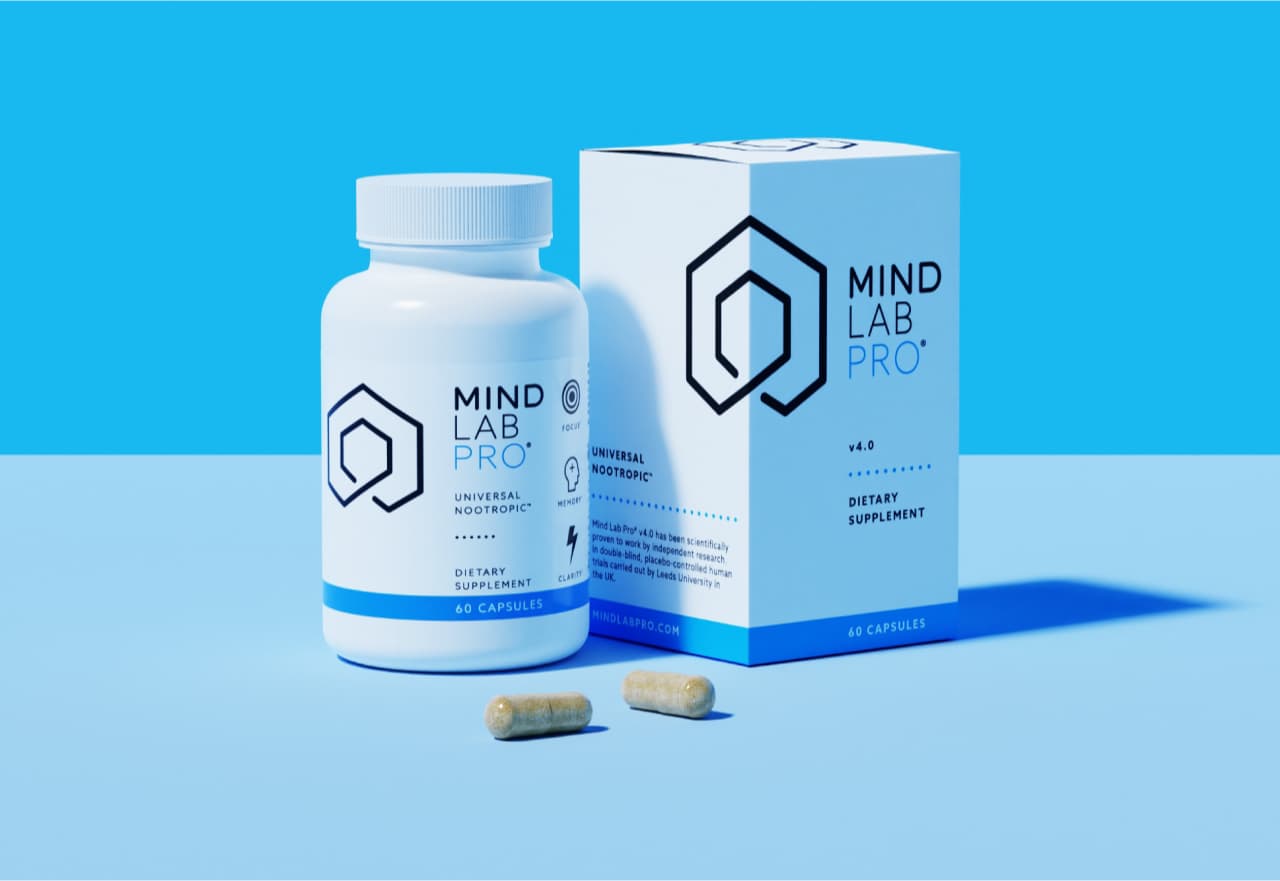
Mind Lab Pro® (MLP®) is a whole-brain optimizer that includes extensive neurotransmitter support. In fact, we covered 10 of its 11 ingredients on our best brain chemical nootropics list.
Each MLP® serving supplies:
- Citicoline dosage 250mg
- Phosphatidylserine (PS), 100 mg
- Bacopa monnieri, 150 mg (full-spectrum extract, 24% bacosides with 9 bioactives)
- Organic Lion's Mane Mushroom, 500 mg (fruit and mycelium)
- Maritime Pine Bark Extract, 75 mg: (Standardized to 95% proanthocyanidins)
- N-Acetyl L-Tyrosine, 175 mg
- L-Theanine, 100 mg
- Rhodiola rosea, 50 mg (Standardized to 3% rosavins and 1% salidrosides)
- NutriGenesis® B-Vitamins: Vitamin B6 (2.5 mg), Vitamin B9 (100 mcg), Vitamin B12 (7.5 mcg)
MLP® can help to promote healthy brain chemical function. It also helps with brain circulation, brain energy, neuroprotection, brain waves, and neural regeneration.
This far-reaching design means MLP® is one nootropic that does it all for people across all walks of life, supporting:
- Sharp, clear and fast mental processing
- Attention, concentration and focus
- Mental energy and agility without caffeine
- Emotional resilience and strong stress resistance
- Memory of all types: Learning, recall, studying
- Overall healthy brain function and long-range wellness
MLP® is also one of the very few nootropic supplements backed with science:
- Study 1: MLP® significantly improve information processing task performance.(31)
- Study 2: MLP® significantly improved multiple distinct memory functions.(32)
Mind Lab Pro® is also a top pick due to its high quality. Verified by the Clean Label Project, MLO is gluten-free, GMO-free and synthetic additive free. It's also Vegetarian Society Vegan Approved.
Buy MLP® Now
Additional Top Brain Balance Supplement Picks
Performance Lab® Mind
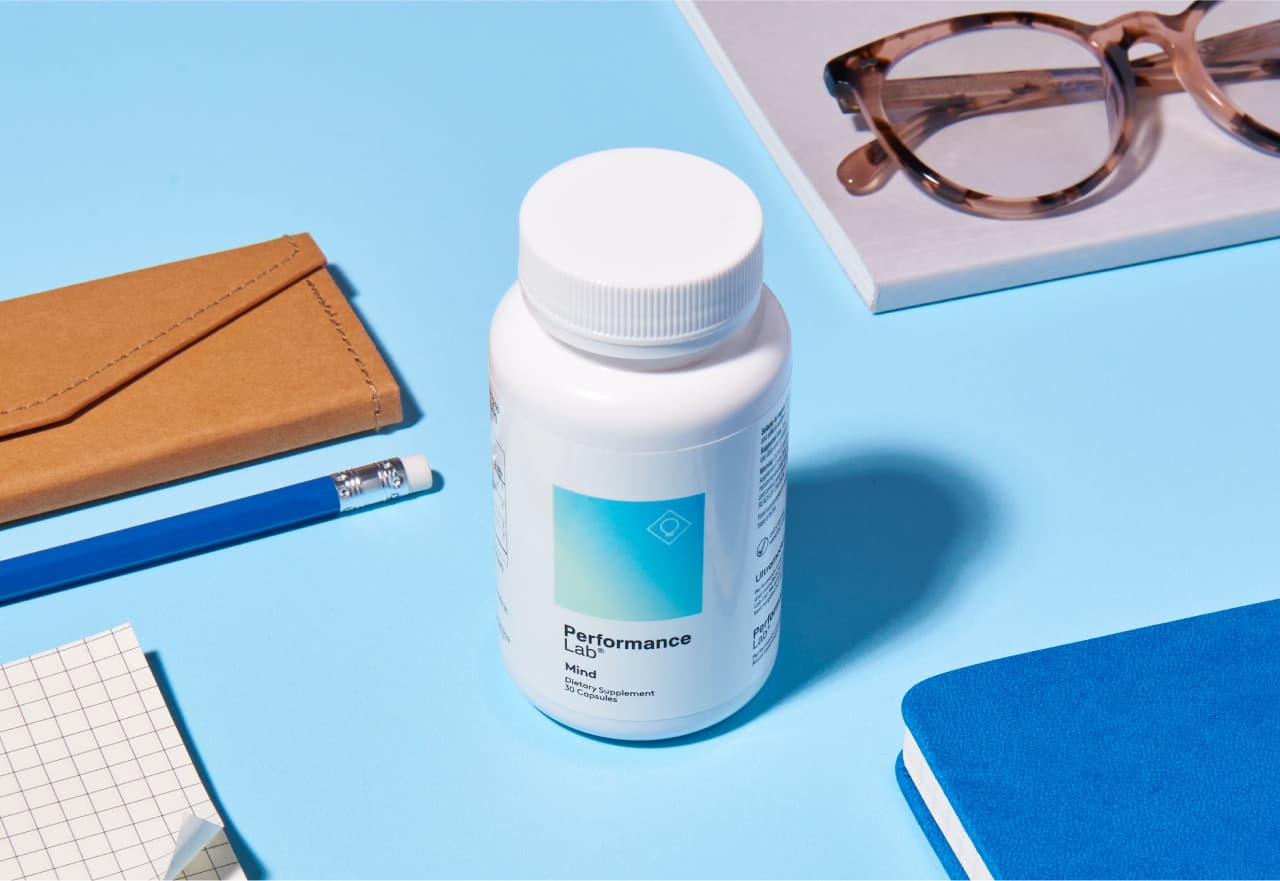
Mind is an ultramodern cognitive performance booster with an emphasis on productivity, focus and mental recovery. Each prebiotic capsule supplies three neurotransmitter nootropics from our list -- Citicoline, PS and L-Tyrosine, plus Maritime Pine Bark Extract.
Best for: Professionals and students whose demanding schedules drain neurotransmitters and lead to brain fog and fatigue. Mind is designed to help you reach and sustain your cognitive intensity peak and then bounce back faster -- with targeted support for performance-oriented brain chemicals.
Learn more about Performance Lab® Mind
Performance Lab® Prebiotic
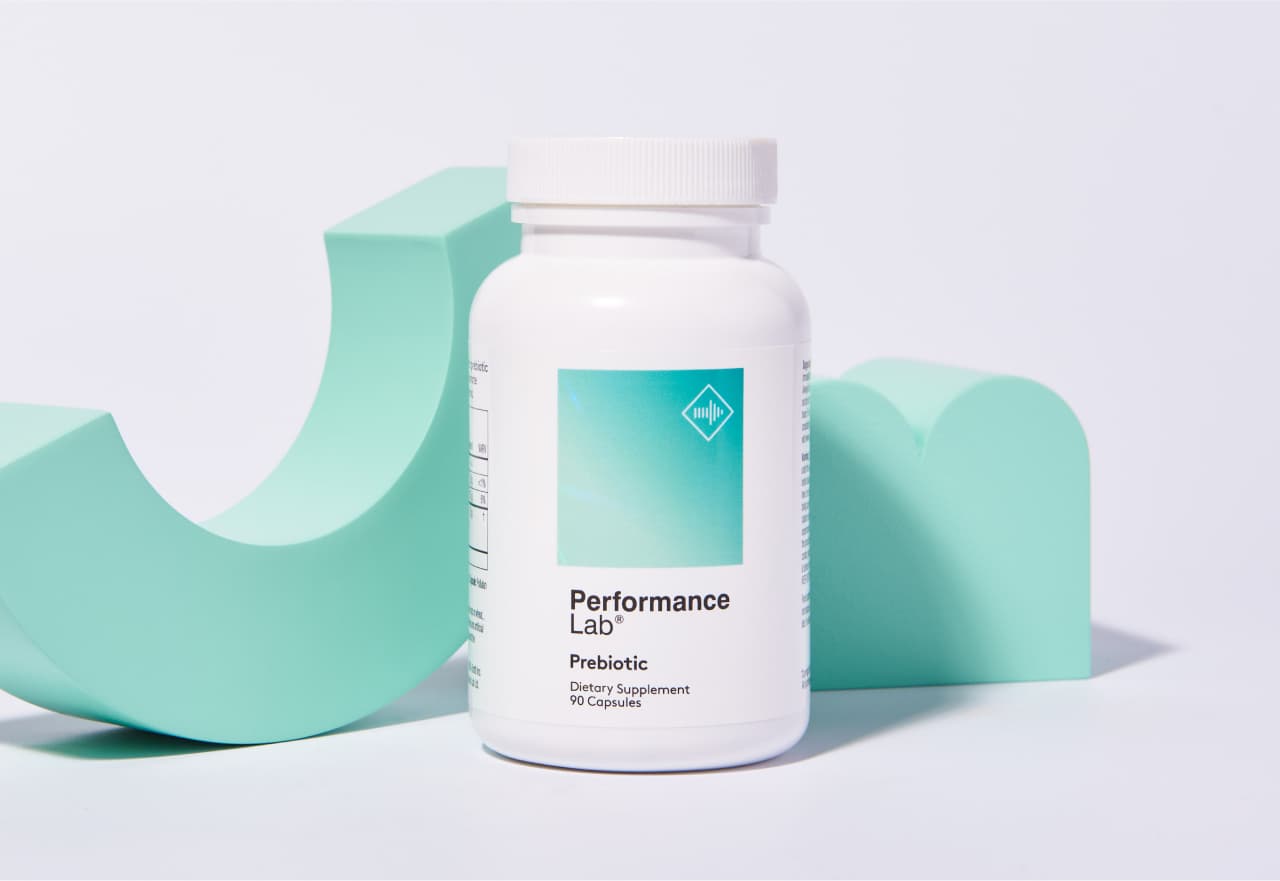
This advanced supplement supplies Inulin-FOS prebiotic fiber from chicory root in clean vegan capsules. Inulin-FOS nourishes Lactobacillus and Bifidobacterium probiotics: two of the most important beneficial bacteria strains for supporting gut synthesis of serotonin and other brain chemicals.
Best for: Boosting the microbiome with prebiotic fiber is a natural approach for raising serotonin to support a healthy and balanced mood. Performance Lab® Prebiotic is the highest-quality prebiotic on the market: convenient brain chemical support with bonus digestive health and heart benefits.
Learn more about Performance Lab® Prebiotic
Performance Lab® Omega-3
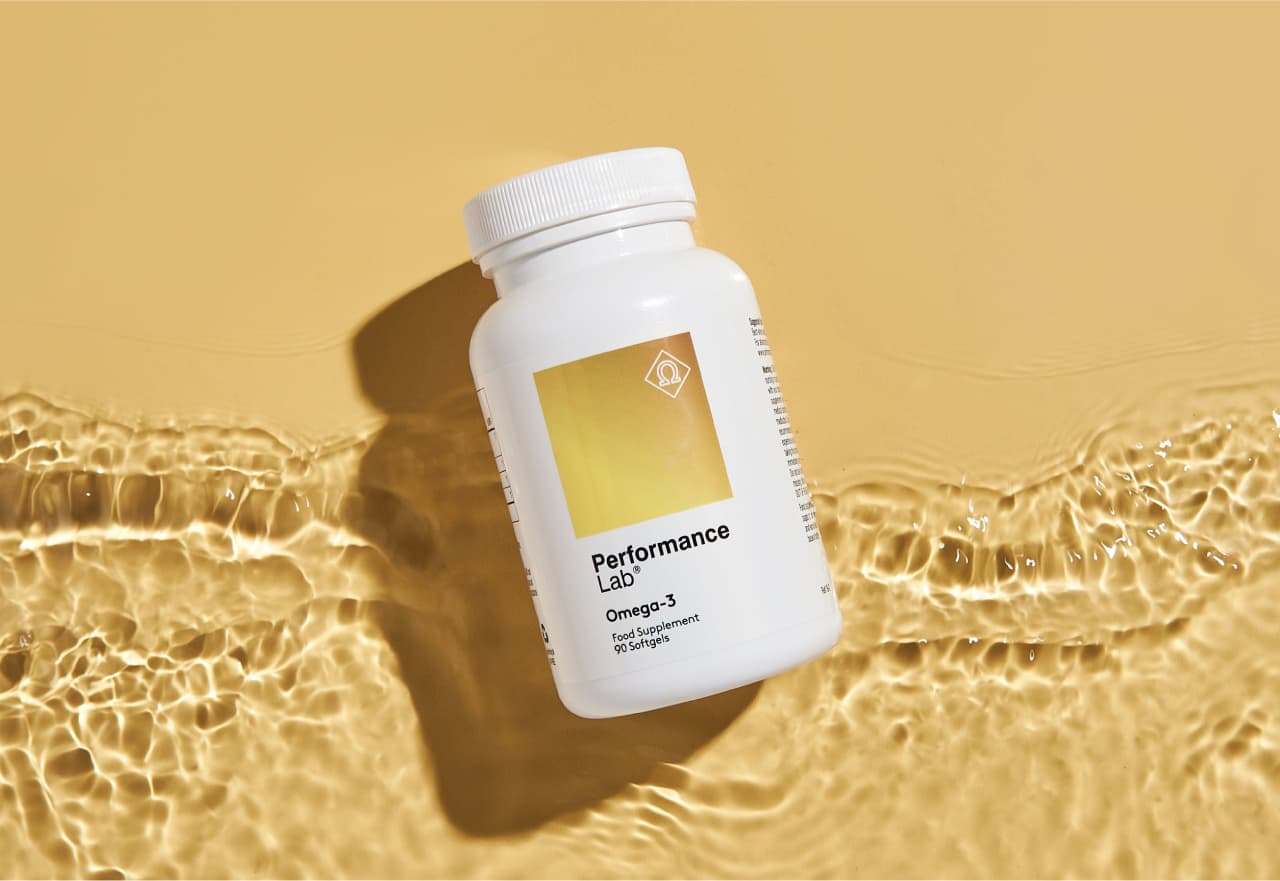
Omega-3 fatty acids are great for neurotransmitters and brain health. But Omgea-3 fish oil supplements are bad for the environment and don't fit clean lifestyles. Performance Lab® Omega-3 is a higher-quality alternative sourced from vegan, eco-friendly Algal Oil and delivered in premium vegan NutriGels®.
Best for: Omega-3s belong in any nootropic regimen, including those for neurotransmitter support. Omega-3 supplementation has been suggested to help with depression and feelings of apprehension. They may be worth considering for those with neurotransmitter-related mood issues.
Learn more about Performance Lab® Omega-3
Pre Lab Pro®
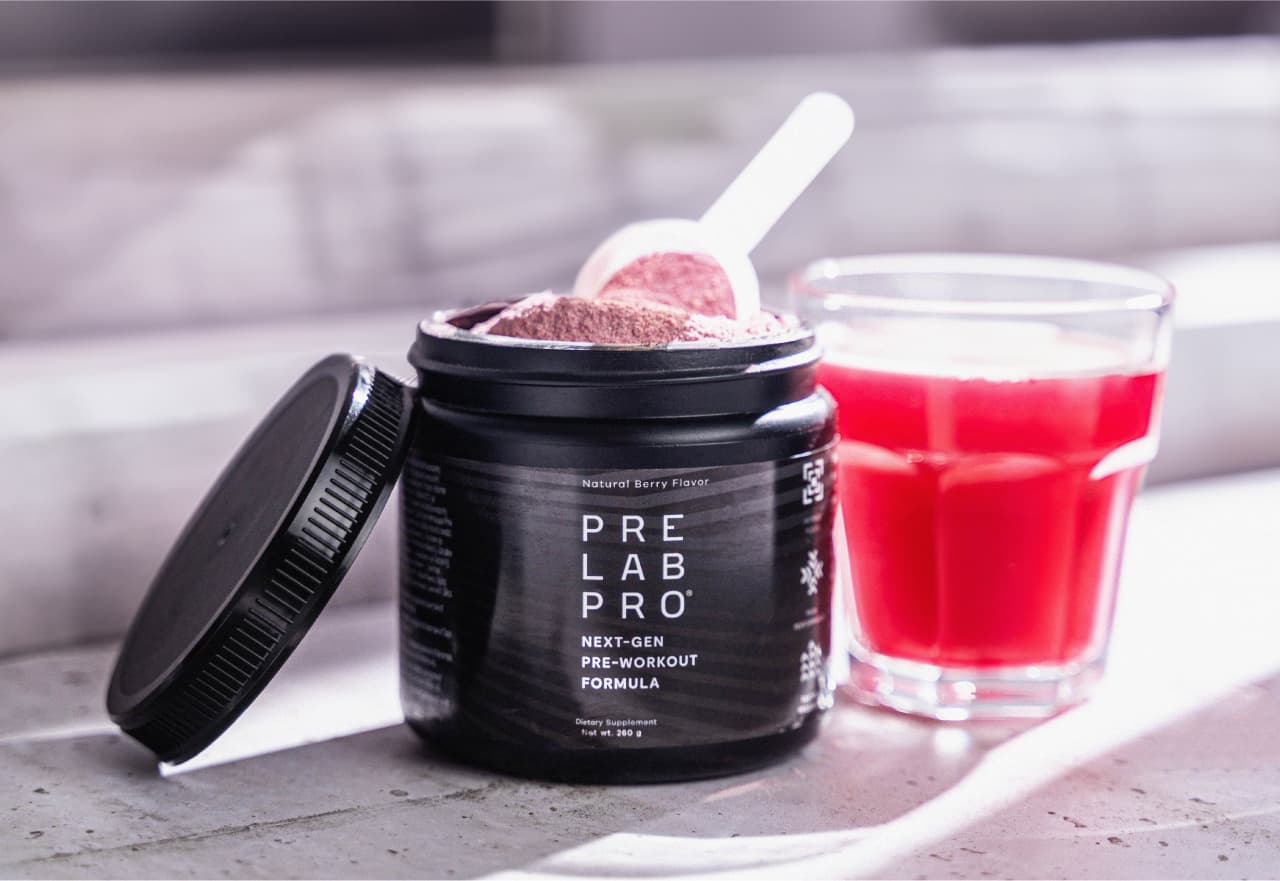
The world's smartest pre-workout supplement, Pre Lab Pro® supplies several nootropics for neurotransmitters, including Natural Caffeine, L-Theanine, L-Tyrosine, Vitamin D3, and B-vitamins. It is presented in a delicious berry-flavored drink mix that is perfect for a brain-boost before the gym.
Best for: If you want to optimize athletic functions like motivation, intensity, focus, strength, speed, stamina and more, Pre Lab Pro® can help you. It boosts brain chemicals and circulation for smooth energy and peak gym performance with no crashes.
Performance Lab® Sleep
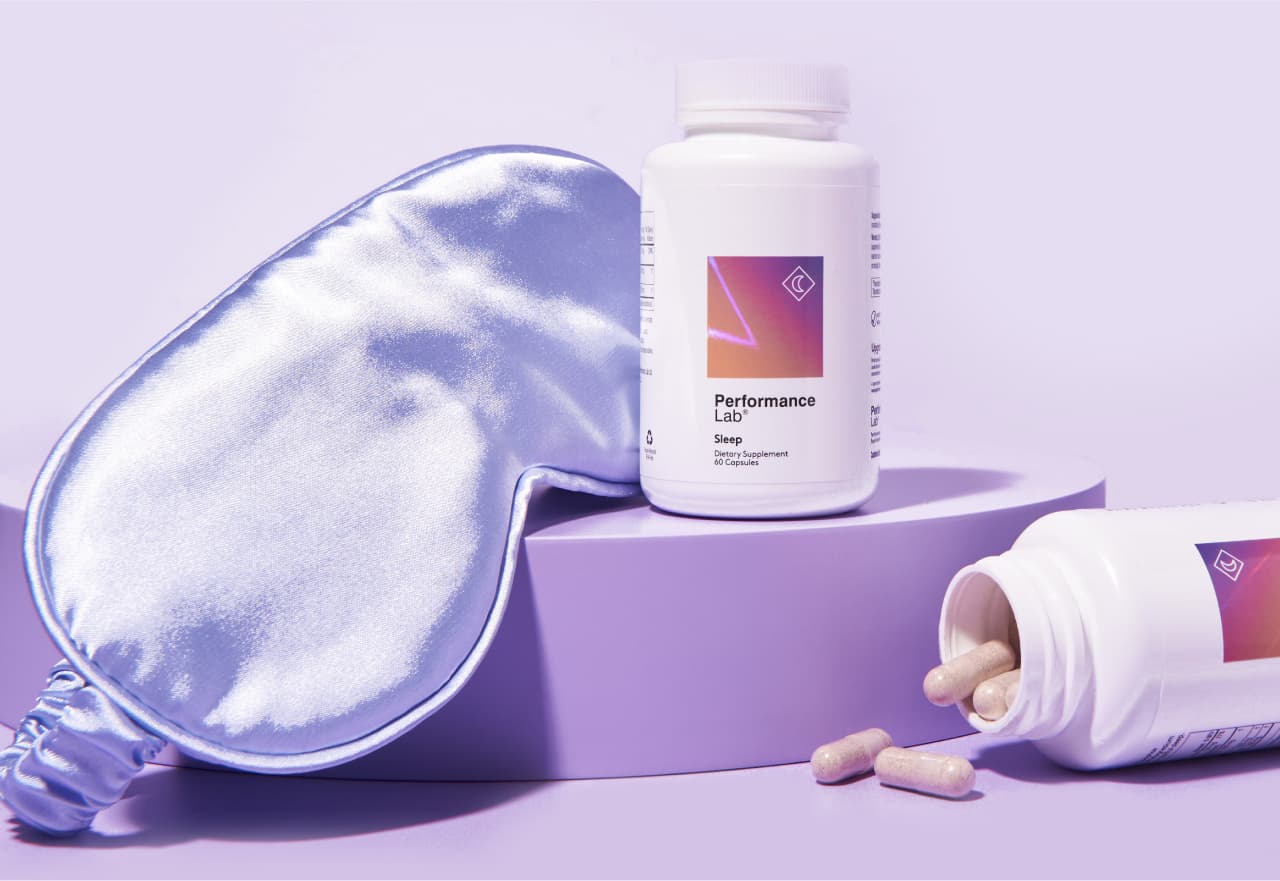
Deep sleep helps neurotransmitter synthesis. Performance Lab® Sleep's clean, natural formula supports restful sleep and brain chemical regeneration at the same time. It includes magnesium, L-tryptophan, sea buckthorn and two forms of magnesium: Magnesium Bisglycinate and NutriGenesis® Magnesium.
Best for: Anyone who needs extra support via deep slumber and neurotransmitter nourishment. Tunes brain activity and cell-to-cell signaling to relax muscles, soothe joints, lift stress and gently drop blood pressure in preparation for sleep. Wake rested with your brain chemical stores fully recharged.
Learn more about Performance Lab® Sleep
Performance Lab® NutriGenesis® Multi
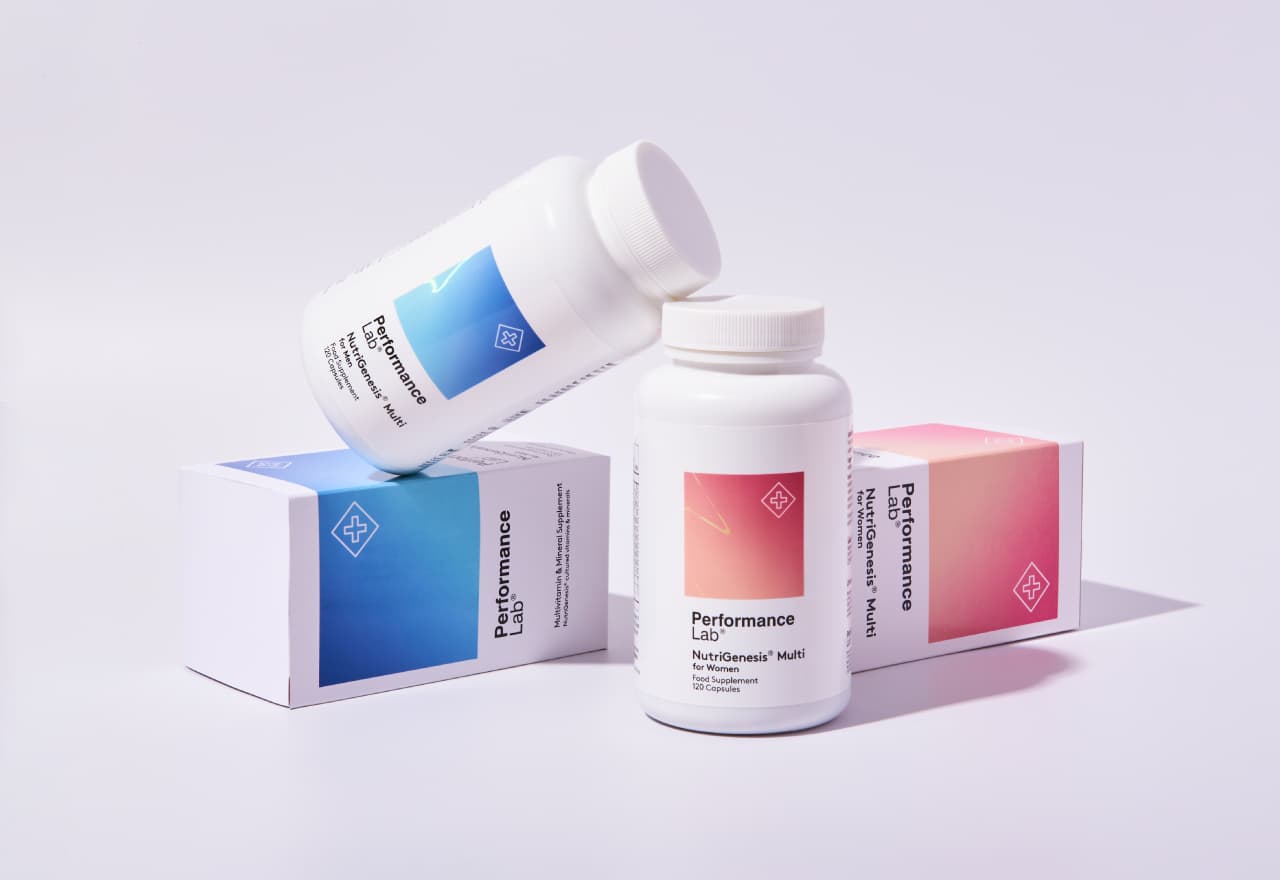
NutriGenesis® multivitamins are clean, easy-to-absorb formulas that deliver the essentials for brain chemical health, including the B-vitamins, magnesium and vitamin D discussed in this guide.
Best for: Foundational support for brain health, including neurotransmitter balance. NutriGenesis Multi® for Men and for Women are high-quality multivitamin options that belong in any nootropic regimen.
Learn more about Performance Lab® NutriGenesis® Multi for Men and for Women
Conclusion
Exploration of nootropics for supporting healthy and balanced neurotransmitters opens up a promising avenue for enhancing cognitive function and overall brain health.
Substances like Omega-3 fatty acids, L-Theanine, Bacopa Monnieri, Rhodiola Rosea, NALT and others in this article stand out for their potential in balancing neurotransmitters, thereby offering benefits like improved memory, focus, and stress reduction.
This guide recommends safe, clean and premium nootropic supplements -- including Mind Lab Pro® -- that may help to support healthy neurotransmitter activity.
Consider them as part of an overall lifestyle strategy to realize the ultimate cognitive benefits of balanced brain chemical messengers, helping to positively influence virtually all aspects of cognition and healthy mind-body performance.
Scientific References
- Appleton J. The Gut-Brain Axis: Influence of Microbiota on Mood and Mental Health. Integr Med (Encinitas). 2018 Aug;17(4):28-32. PMID: 31043907; PMCID: PMC6469458.
- Abdou AM, Higashiguchi S, Horie K, Kim M, Hatta H, Yokogoshi H. Relaxation and immunity enhancement effects of gamma-aminobutyric acid (GABA) administration in humans. Biofactors. 2006;26(3):201-8. doi: 10.1002/biof.5520260305. PMID: 16971751.
- Fernstrom JD, Fernstrom MH. Tyrosine, phenylalanine, and catecholamine synthesis and function in the brain. J Nutr. 2007 Jun;137(6 Suppl 1):1539S-1547S; discussion 1548S. doi: 10.1093/jn/137.6.1539S. PMID: 17513421.
- Neri DF, Wiegmann D, Stanny RR, Shappell SA, McCardie A, McKay DL. The effects of tyrosine on cognitive performance during extended wakefulness. Aviat Space Environ Med. 1995 Apr;66(4):313-9. PMID: 7794222.
- Rajan KE, Preethi J, Singh HK. Molecular and Functional Characterization of Bacopa monniera: A Retrospective Review. Evid Based Complement Alternat Med. 2015;2015:945217. doi: 10.1155/2015/945217. Epub 2015 Aug 27. PMID: 26413131; PMCID: PMC4564644.
- Morgan A, Stevens J. Does Bacopa monnieri improve memory performance in older persons? Results of a randomized, placebo-controlled, double-blind trial. J Altern Complement Med. 2010 Jul;16(7):753-9. doi: 10.1089/acm.2009.0342. PMID: 20590480.
- Walker EA, Pellegrini MV. Bacopa monnieri. [Updated 2023 Mar 17]. In: StatPearls [Internet]. Treasure Island (FL): StatPearls Publishing; 2023 Jan-.
- Li IC, Lee LY, Tzeng TT, Chen WP, Chen YP, Shiao YJ, Chen CC. Neurohealth Properties of Hericium erinaceus Mycelia Enriched with Erinacines. Behav Neurol. 2018 May 21;2018:5802634. doi: 10.1155/2018/5802634. PMID: 29951133; PMCID: PMC5987239.
- Mayumi N, Shimizu K, Kondo R, Hayashi C, Sato D, Kitagawa K, & Ohnuki K 2010, Reduction of depression and anxiety by 4 weeks Hericium erinaceus intake. Biomedical Research. 31(4): 231-237.
- Mori K, et al. Improving effects of the mushroom Yamabushitake (Hericium erinaceus) on mild cognitive impairment: a double-blind placebo-controlled clinical trial. Phytother Res. 2009 Mar;23(3):367-72. doi: 10.1002/ptr.2634.
- Ivanova Stojcheva E, Quintela JC. The Effectiveness of Rhodiola rosea L. Preparations in Alleviating Various Aspects of Life-Stress Symptoms and Stress-Induced Conditions-Encouraging Clinical Evidence. Molecules. 2022 Jun 17;27(12):3902. doi: 10.3390/molecules27123902. PMID: 35745023; PMCID: PMC9228580.
- Hung SK, Perry R, Ernst E. The effectiveness and efficacy of Rhodiola rosea L.: a systematic review of randomized clinical trials. Phytomedicine. 2011 Feb 15;18(4):235-44. doi: 10.1016/j.phymed.2010.08.014. Epub 2010 Oct 30.
- Nathan PJ, Lu K, Gray M, Oliver C. The neuropharmacology of L-theanine(N-ethyl-L-glutamine): a possible neuroprotective and cognitive enhancing agent. J Herb Pharmacother. 2006;6(2):21-30. PMID: 17182482.
- Kimura K, Ozeki M, Juneja LR, Ohira H. L-Theanine reduces psychological and physiological stress responses. Biol Psychol. 2007 Jan;74(1):39-45. doi: 10.1016/j.biopsycho.2006.06.006. Epub 2006 Aug 22. PMID: 16930802.
- Baba Y, Inagaki S, Nakagawa S, Kaneko T, Kobayashi M, Takihara T. Effects of l-Theanine on Cognitive Function in Middle-Aged and Older Subjects: A Randomized Placebo-Controlled Study. J Med Food. 2021 Apr;24(4):333-341. doi: 10.1089/jmf.2020.4803. Epub 2021 Mar 22. PMID: 33751906; PMCID: PMC8080935.
- Kingsley M. Effects of phosphatidylserine supplementation on exercising humans. Sports Med. 2006;36(8):657-69. doi: 10.2165/00007256-200636080-00003. PMID: 16869708.
- Glade MJ, Smith K. Phosphatidylserine and the human brain. Nutrition. 2015 Jun;31(6):781-786.
- Wignall ND, Brown ES. Citicoline in addictive disorders: a review of the literature. Am J Drug Alcohol Abuse. 2014 Jul;40(4):262-8. doi: 10.3109/00952990.2014.925467. Epub 2014 Jun 20. PMID: 24950234; PMCID: PMC4139283.
- Purves D, Augustine GJ, Fitzpatrick D, et al., editors. Neuroscience. 2nd Edition. Sunderland (MA): Sinauer Associates; 2001.
- Jasielski P, Piędel F, Piwek M, Rocka A, Petit V, Rejdak K. Application of Citicoline in Neurological Disorders: A Systematic Review. Nutrients. 2020 Oct 12;12(10):3113. doi: 10.3390/nu12103113. PMID: 33053828; PMCID: PMC7601330.
- Silveri MM et al. Citicoline enhances frontal lobe bioenergetics as measured by phosphorus magnetic resonance spectroscopy. NMR Biomed. 2008; 21(10):1066-75.
- DiNicolantonio JJ, O'Keefe JH. The Importance of Marine Omega-3s for Brain Development and the Prevention and Treatment of Behavior, Mood, and Other Brain Disorders. Nutrients. 2020 Aug 4;12(8):2333. doi: 10.3390/nu12082333. PMID: 32759851; PMCID: PMC7468918.
- https://www.health.harvard.edu/blog/omega-3-fatty-acids-for-mood-disorders-2018080314414
- Chen Y, Xu J, Chen Y. Regulation of Neurotransmitters by the Gut Microbiota and Effects on Cognition in Neurological Disorders. Nutrients. 2021 Jun 19;13(6):2099. doi: 10.3390/nu13062099. PMID: 34205336; PMCID: PMC8234057.
- Paiva IHR, Duarte-Silva E, Peixoto CA. The role of prebiotics in cognition, anxiety, and depression. Eur Neuropsychopharmacol. 2020 May;34:1-18. doi: 10.1016/j.euroneuro.2020.03.006. Epub 2020 Mar 30. PMID: 32241688.
- Volkow ND, Wang GJ, Logan J, Alexoff D, Fowler JS, Thanos PK, Wong C, Casado V, Ferre S, Tomasi D. Caffeine increases striatal dopamine D2/D3 receptor availability in the human brain. Transl Psychiatry. 2015 Apr 14;5(4):e549. doi: 10.1038/tp.2015.46. PMID: 25871974; PMCID: PMC4462609.
- Kennedy DO. B Vitamins and the Brain: Mechanisms, Dose and Efficacy--A Review. Nutrients. 2016 Feb; 8(2): 68.
- Menon V, Kar SK, Suthar N, Nebhinani N. Vitamin D and Depression: A Critical Appraisal of the Evidence and Future Directions. Indian J Psychol Med. 2020 Jan 6;42(1):11-21. doi: 10.4103/IJPSYM.IJPSYM_160_19. PMID: 31997861; PMCID: PMC6970300.
- Tarleton EK, Littenberg B. Magnesium intake and depression in adults. J Am Board Fam Med. 2015 Mar-Apr;28(2):249-56. doi: 10.3122/jabfm.2015.02.140176. PMID: 25748766.
- Richard DM, Dawes MA, Mathias CW, Acheson A, Hill-Kapturczak N, Dougherty DM. L-Tryptophan: Basic Metabolic Functions, Behavioral Research and Therapeutic Indications. Int J Tryptophan Res. 2009 Mar 23;2:45-60. doi: 10.4137/ijtr.s2129. PMID: 20651948; PMCID: PMC2908021.
- Utley A, Gonzalez Y, Imboden CA. The Efficacy of A Nootropic Supplement on Information Processing in Adults: A Double Blind, Placebo Controlled Study. Biomed J Sci & Tech Res 49(1)-2023. BJSTR. MS.ID.007746
- Abbott-Imboden C., Gonzalez Y., Utley A. (2023). Efficacy of the nootropic supplement Mind Lab Pro on memory in adults: Double blind, placebo-controlled study. Human Psychopharmacology: Clinical and Experimental, e2872.
